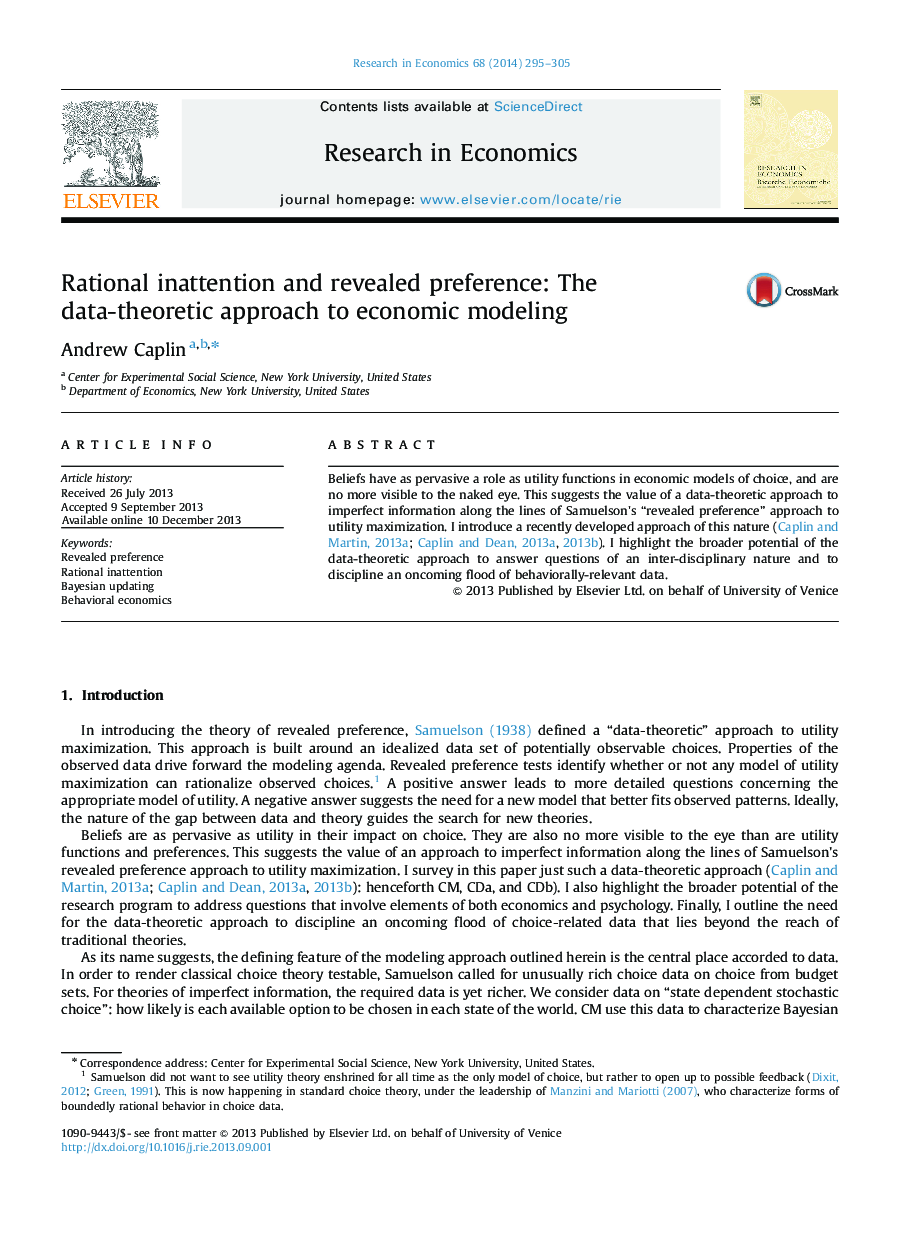| Article ID | Journal | Published Year | Pages | File Type |
|---|---|---|---|---|
| 983375 | Research in Economics | 2014 | 11 Pages |
Abstract
Beliefs have as pervasive a role as utility functions in economic models of choice, and are no more visible to the naked eye. This suggests the value of a data-theoretic approach to imperfect information along the lines of Samuelson's “revealed preference” approach to utility maximization. I introduce a recently developed approach of this nature (Caplin and Martin, 2013a, Caplin and Dean, 2013a and Caplin and Dean, 2013b). I highlight the broader potential of the data-theoretic approach to answer questions of an inter-disciplinary nature and to discipline an oncoming flood of behaviorally-relevant data.
Related Topics
Social Sciences and Humanities
Economics, Econometrics and Finance
Economics and Econometrics
Authors
Andrew Caplin,
